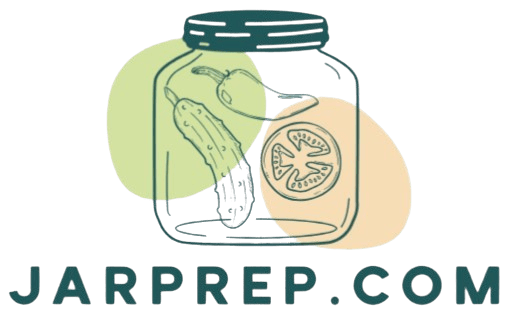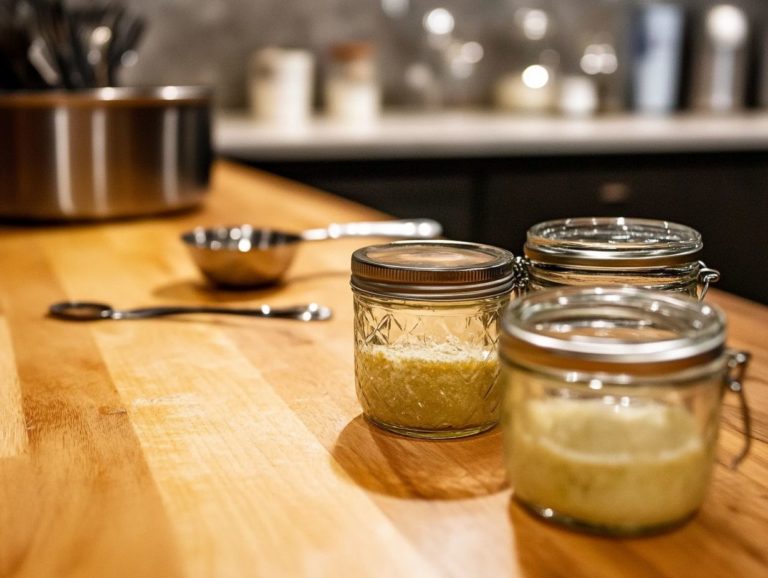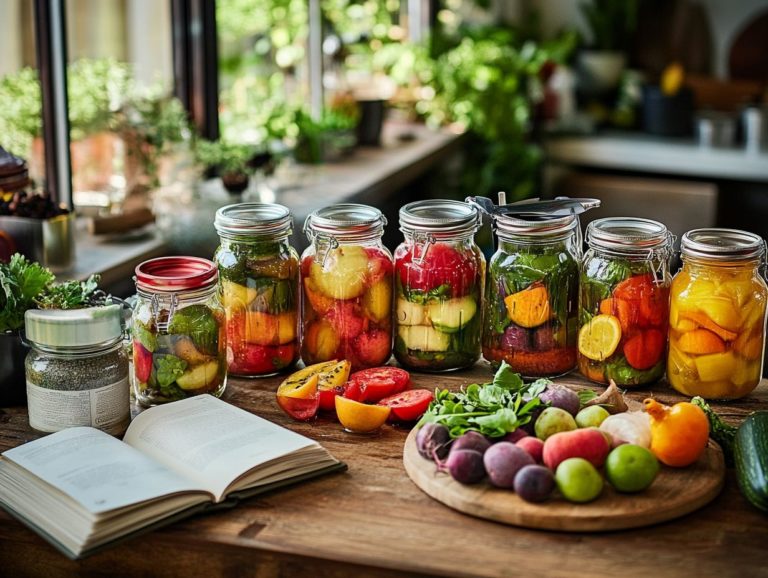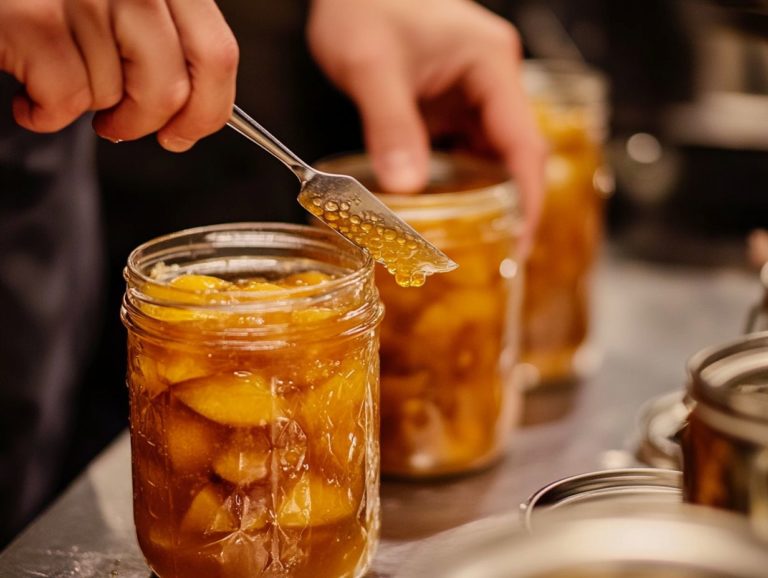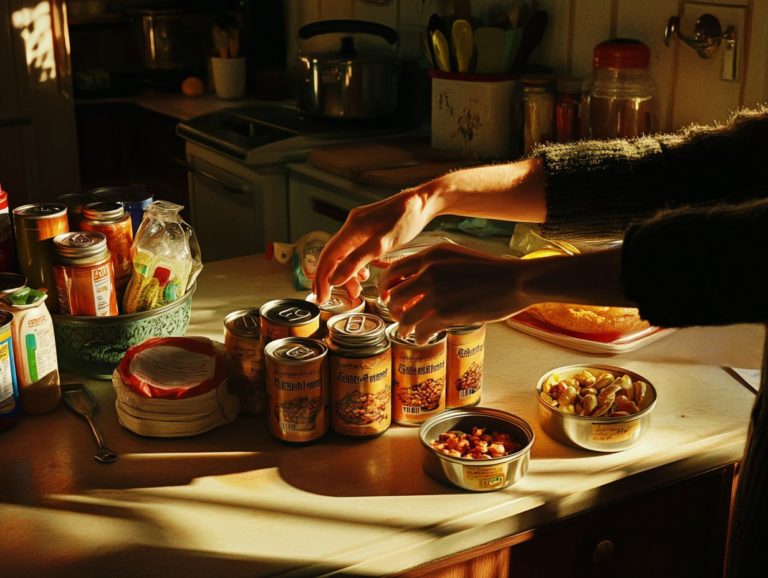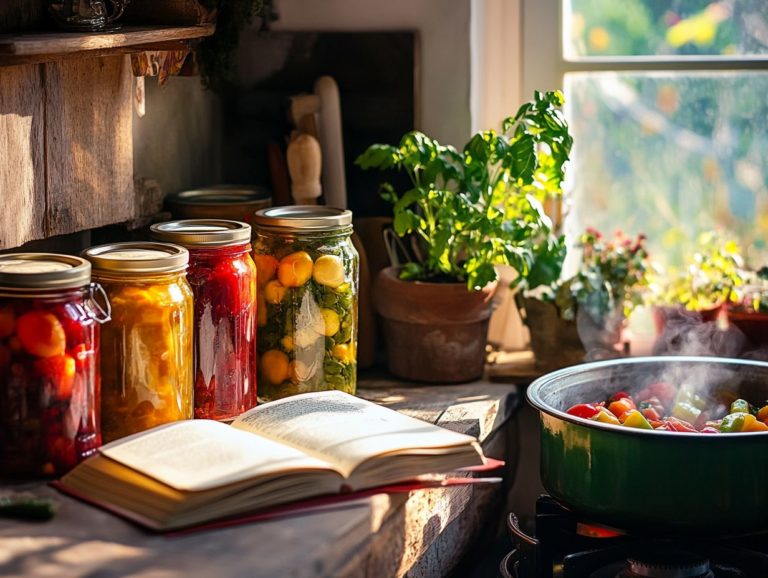How to Store Canned Goods Properly?
Canned goods are a staple in your kitchen. They offer unmatched convenience and an impressive shelf life. But how much do you really know about them?
This article explores what canned goods are. It highlights their benefits and essential storage practices for safety and taste.
Are you considering alternatives to canned foods? Rest assured, there are other storage options available.
Contents
Key Takeaways:
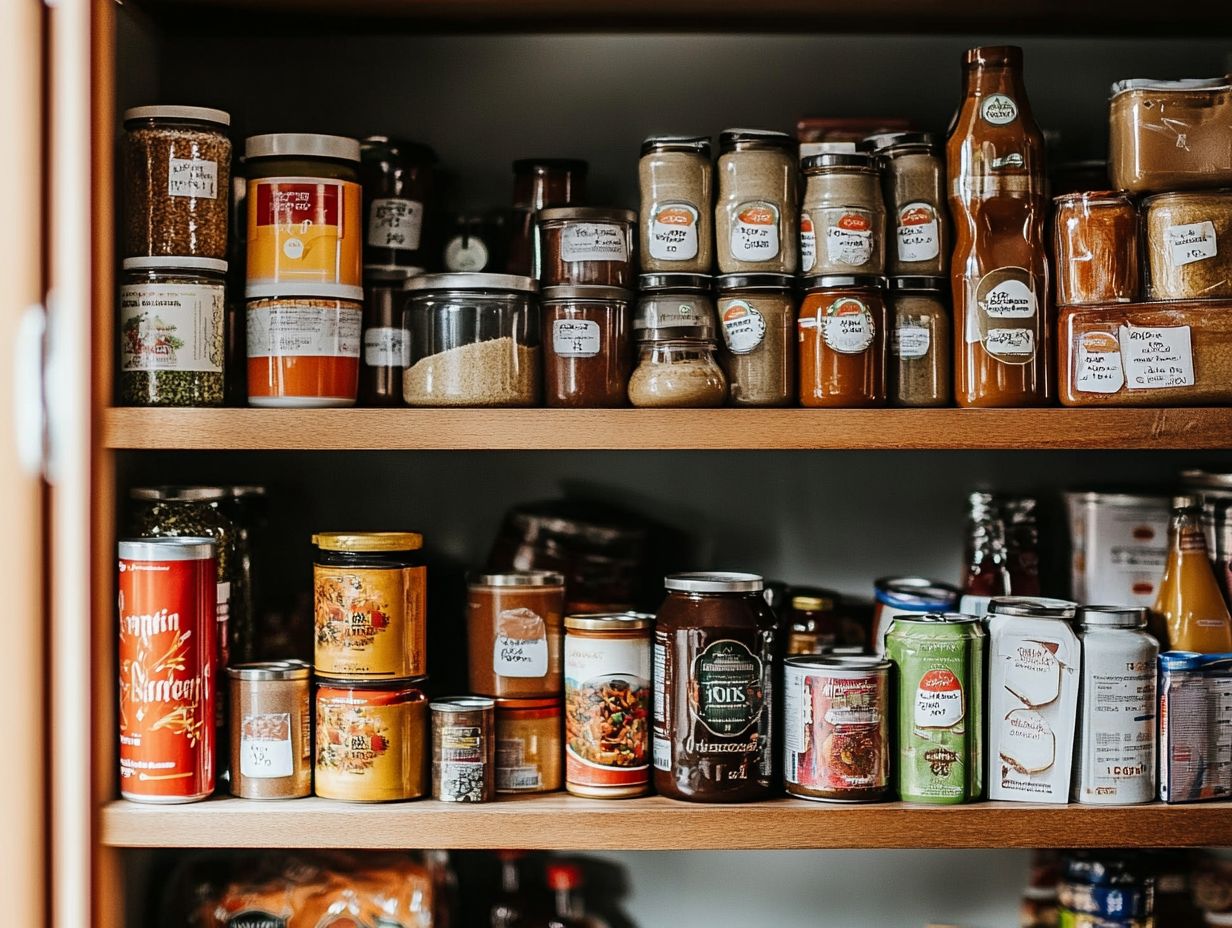
To keep canned goods fresh, store them in a cool, dry place away from sunlight. Always check for bulging or leaking cans to avoid foodborne illness.
Consider alternative food storage options, such as freezing or dehydrating, to preserve foods without the added preservatives and sodium found in canned goods.
Understanding Canned Goods
Understanding canned goods is vital for anyone who takes food preservation seriously. They offer a convenient and enduring solution for a range of dietary needs.
Canned goods, whether fruits or vegetables, go through careful processes monitored by trusted organizations like the USDA and the Cooperative Extension Service, especially in prominent regions like Georgia.
By employing home canning techniques or opting for trusted commercial canners, you can preserve the nutritional value and quality of your foods, ensuring they remain safe and delightful for a long time.
What Are Canned Goods?
Canned goods are food items expertly preserved through the canning process, allowing you to store them for extended periods without compromising safety.
This meticulous technique involves sealing food in a container typically metal or glass and subjecting it to heat. This process eliminates bacteria, yeasts, and molds that could spoil the contents.
Foods are categorized as high acid or low acid based on their pH levels, which is a critical factor influencing both safety and storage methods.
High acid foods like tomatoes and fruits can be processed using a water bath canning method, while low acid foods such as vegetables and meats necessitate pressure canning to eliminate the risk of botulism, a serious illness caused by bacteria that can grow in improperly canned foods.
Benefits of Canned Goods
Canned goods present a wealth of benefits, establishing themselves as staples in many households, particularly for emergency storage and meal preparation. Their convenience and impressive shelf life make them an excellent choice for various dietary needs.
With a myriad of options at your fingertips, these food items can deliver essential nutrition and flavor during times of need. Take canned vegetables, for example; they retain most of their vitamins and minerals, allowing you to effortlessly incorporate healthy choices into your diet without the tiresome prep work.
Canned fruits provide a quick and delightful solution to satisfy your sweet cravings while still delivering important nutrients. The high quality of these products guarantees both longevity and taste, ultimately alleviating the stress of meal planning, especially when fresh options aren t within reach.
Proper Storage of Canned Goods
Ensuring the proper storage of canned goods is essential for maintaining food safety and prolonging their shelf life. For instance, knowing how to store canned vegetables can help guarantee that the contents remain both nutritious and safe for consumption as time passes.
Factors Affecting Storage
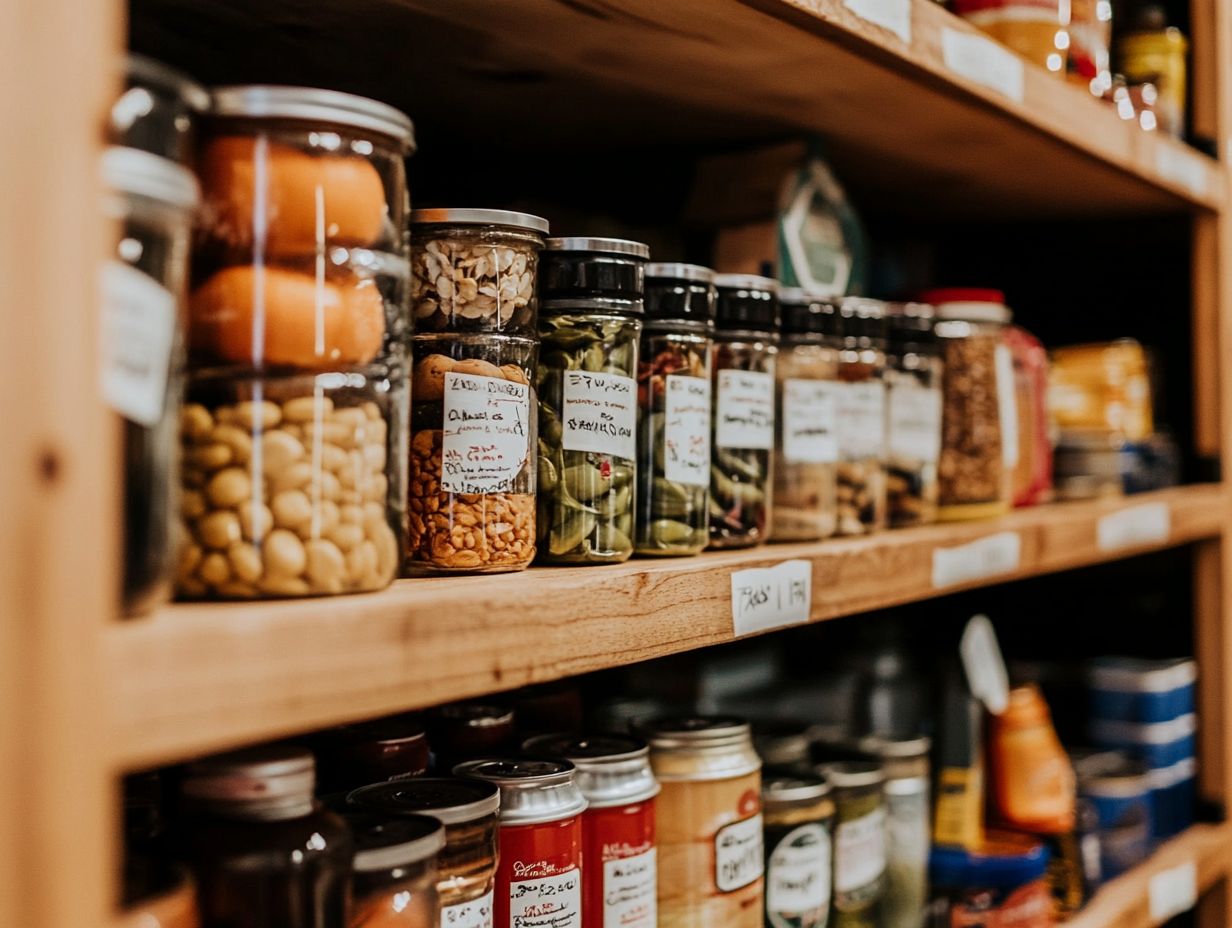
Several factors can significantly influence the effective storage of your canned goods, including temperature, humidity, and the integrity of the canning jars. These are all critical components in ensuring food safety.
Understanding how each of these elements contributes to food preservation can notably reduce the risk of spoilage or food poisoning. For example, keeping your canned goods in a consistently cool environment is essential to prevent the growth of harmful bacteria. On the flip side, excessive humidity can lead to rust on metal lids or jars, jeopardizing their seals.
The condition of your canning jars also impacts food safety. Cracks or compromised seals directly affect the freshness and safety of the contents. By paying attention to these factors, you can enhance the longevity of your canned food and ensure that it remains safe for consumption.
Best Practices for Storage
Implementing best practices for storing canned goods can significantly elevate food safety and extend the shelf life of your products.
Start by cleaning the jars thoroughly and inspecting jar lids before tucking them away. Diligently remove any dust or particles that might cause contamination.
If the seals on your jars are compromised, reprocessing them is essential. This can often be accomplished by boiling them again to create a secure seal.
Another vital practice is adopting the first-in, first-out method. This approach encourages the use of older items before newer ones, effectively minimizing the risk of spoilage.
Follow these tips to keep your canned goods fresh and safe! By adhering to these guidelines on how to store your canning supplies effectively, you preserve the quality of your canned goods and foster a safe and healthy food storage environment.
Signs of Spoiled Canned Goods
Recognizing the signs of spoiled canned goods is crucial to avoid dangerous food poisoning and ensure that the food you consume is both safe and of the highest quality.
Identifying Spoilage
Identifying spoilage in canned goods requires a keen eye to recognize specific signs that indicate compromised food quality and safety.
Look out for indicators like swelling or bulging of the can this is a red flag that gases produced by bacteria might be present inside. Other visual cues, such as punctures or rust on the can’s surface, can signal potential entry points for contaminants.
When you open a can, an off-putting odor should immediately raise alarms. A change in texture, like excessive mushiness or unusual firmness, also signals spoilage.
Remaining vigilant is essential, as spoiled foods can produce botulinum toxin, leading to severe food poisoning. By understanding these signs, you protect your health and ensure that you can enjoy your meals safely.
Safe Consumption of Canned Goods
Ensuring the safe consumption of canned goods requires you to grasp proper preparation methods while adhering to stringent food safety standards. This not only helps in preserving the delightful textures and flavors of the food but also guarantees your well-being.
How to Safely Consume Canned Goods
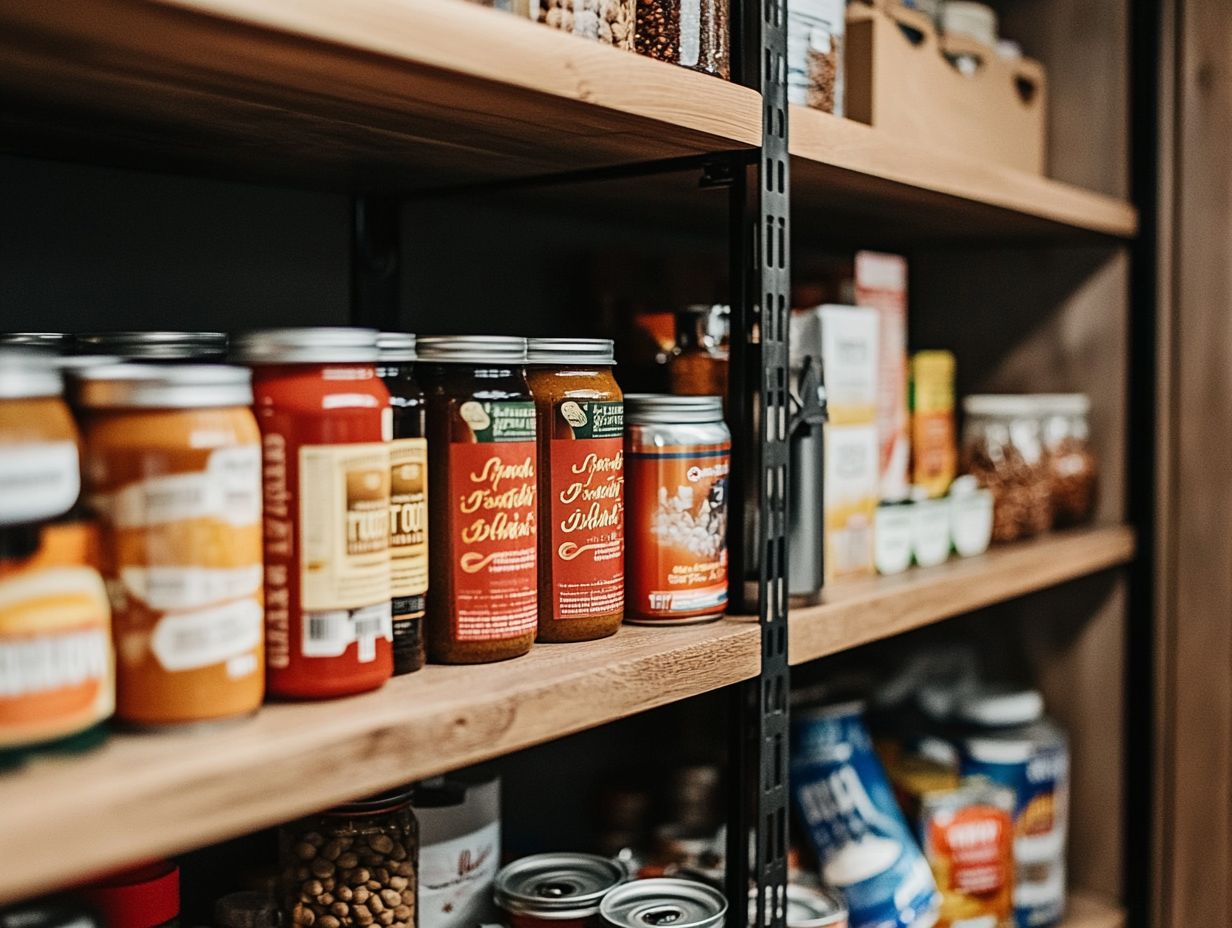
To safely enjoy canned goods, it s crucial to follow proper preparation methods. Heating them adequately helps eliminate potential harmful germs and ensures food safety.
By adhering to these guidelines, you can significantly reduce the risk of foodborne illnesses while preserving the rich flavors of your canned items. Start by inspecting the cans for any signs of damage, such as bulging, leaking, or rust. These could indicate spoilage.
Once you ve confirmed the cans are safe, make sure to heat them thoroughly. This can elevate the taste and texture of the contents.
Make sure to heat your canned goods to at least 165 F (74 C) to keep your family safe and enjoying delicious meals. For soups or stews, transferring them to a saucepan or a microwave-safe container will allow for even heating.
Remember to use a clean utensil for serving to avoid any risk of cross-contamination. Prioritizing food safety practices not only enhances your culinary experience but also contributes to a healthier lifestyle.
Alternatives to Canned Goods
Exploring alternatives to canned goods opens a world of diverse food storage options for you, including freezer storage. This ensures your dietary needs are met without compromising on quality and safety.
This approach enhances your culinary experience and allows for a more personalized and nutritious pantry.
Other Food Storage Options
Consider food storage options like freezer storage and vacuum sealing. These methods help retain nutrients and extend shelf life.
Freezer storage is your ally in preserving food. It slows down chemical changes and inhibits microbial growth, ensuring that vital vitamins and minerals stay intact. This method works particularly well for fruits, vegetables, and meats, allowing their natural flavors and textures to be beautifully maintained when properly sealed.
Vacuum sealing takes it a step further by removing air from packaging. This significantly reduces oxidation and spoilage. It also minimizes freezer burn, allowing your items to last much longer than with traditional storage methods.
While both alternatives may require a bit of an upfront investment in equipment and might not be as convenient as grabbing a can off the shelf, the benefits you gain in quality and longevity are well worth it.
Frequently Asked Questions
What are the best storage practices for canned goods?
The best way to store canned goods is in a cool, dry place, away from direct sunlight. For more detailed advice on preserving their quality, check out how to store canned goods for maximum shelf life, as this helps prevent spoilage and maintains the quality of the food.
Can canned goods be stored in the refrigerator?
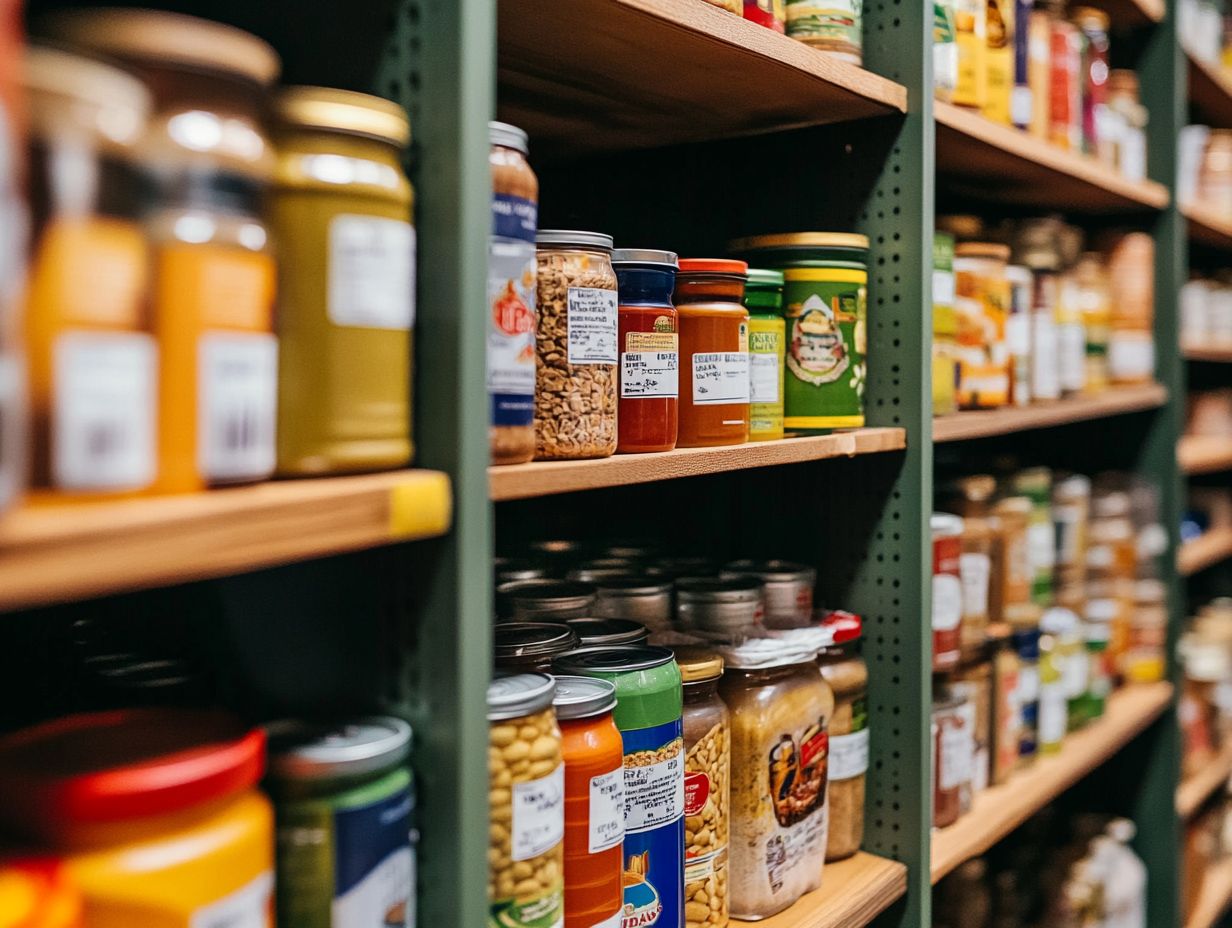
Yes, but it’s usually not necessary. Canned goods can last on the shelf without refrigeration unless the label specifically states otherwise.
How long can I store canned goods?
The shelf life of canned goods varies depending on the type of food and the storage conditions. Most canned goods can be safely stored for 1-2 years, but it s best to check the expiration date on the can.
What is the proper way to open a can of food?
To open a can, use a can opener to puncture the lid and create a smooth, safe edge. Avoid using your hands or any other object to open the can, as it can be dangerous and may cause the food to spoil faster.
Is it safe to eat canned goods past the expiration date?
It is not recommended to eat canned goods past their expiration date. Some may still be safe to consume, but the quality and taste may be compromised. It s best to err on the side of caution and discard any expired canned goods.
How can I prevent rust on canned goods?
To prevent rust, store canned goods in a cool, dry place and avoid exposing them to moisture. Additionally, understanding the importance of proper canning equipment storage can help ensure the longevity of your supplies. Check the cans for dents or damage before purchasing or storing them.
By following these guidelines, you’re not just preserving food; you’re safeguarding your health!
